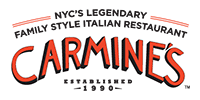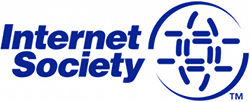Radical/Networks
October 24-25, 2015
Integrated Digital Media
MAGNET NYU Poly, Brooklyn, NY
Dennis de Bel

Dennis de Bel (1984, NL) graduated in June 2007 as an Interactive Media designer at the Willem de Kooning Academy, Rotterdam. In June 2009, he completed the Master Media Design and Communication at the Piet Zwart Institute, also in Rotterdam.
De Bel's exploration of interactivity and utility has led him to make humorous design interventions, manifested word puns, useless software and more recently "no-ware". This term describes some of his latest works that are no longer hardware nor software but non-products, unique multiples and mass-produced one-offs that question functionality, inventiveness and innovation.
Currently he is collaborating with Roel Roscam Abbing on a practical research project on 'Post-Digital Communication in the last days of the web'.
Presenting with Roel Roscam Abbing
Workshop: Packet Radio Networks
Before there was the internet there was a wireless internet. In this (non-FCC approved) workshop we will look back to ALOHANET, AMPRNET and examine the phenomenon of packet radio. The workshop will be a hands-on, interactive demonstration of the possibilities of packet radio and the workflow/toolchain. We will go into both historical and contemporary examples and try to set up a little network on the spot.
Participants will learn how to utilize commercial walkie-talkie radios and free software to transmit and receive TCP/IP over HF or UHF radio. In other words, internet via walkie-talkie, because yes, that's possible. Looking beyond the usual "When Shit Hits The Fan Scenario's" we will discuss the true potential and shortcomings of these 6km+ range wireless 'routers'. Depending on the wishes of the participants we can either do a demo and go through the steps and requirements of setting this up for themselves or help set up participant's own equipment to create one big offline network.
Participants will get a small publication that is both an introduction into the concept as well as a practical guide on how set up your internet over walkie talkie. Each participant will get one copy as a reference etc for when they want to do their own experiments.
No experience is necessary.
Materials
Please bring a laptop, preferably with Linux installed, a USB flash drive ~4GB, and $9 for additional materials prepared by the workshop leaders.
Extra materials to bring if you would like (but are not required)
- UHF walkie talkie's if you already have some available.
- 'Baofeng UV-5r' (in yellow, blue or red)
- 2.5mm mono jack plug
- 3.5mm mono jack plug
- 3.5mm TNC plug (4 pole)
- Audiocable (2 pole)





